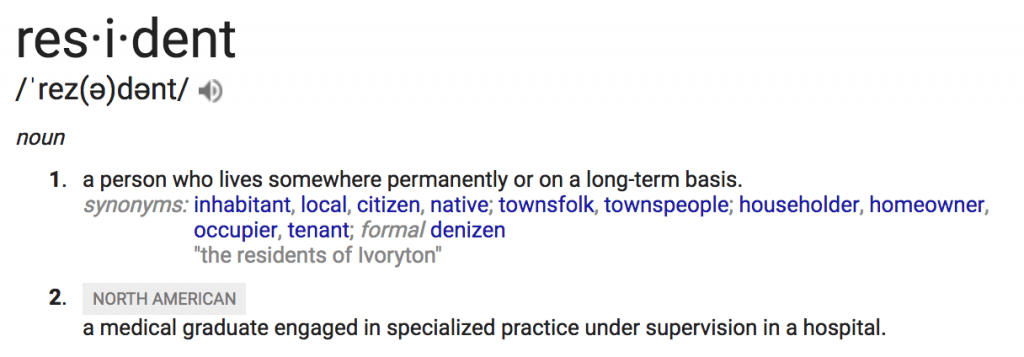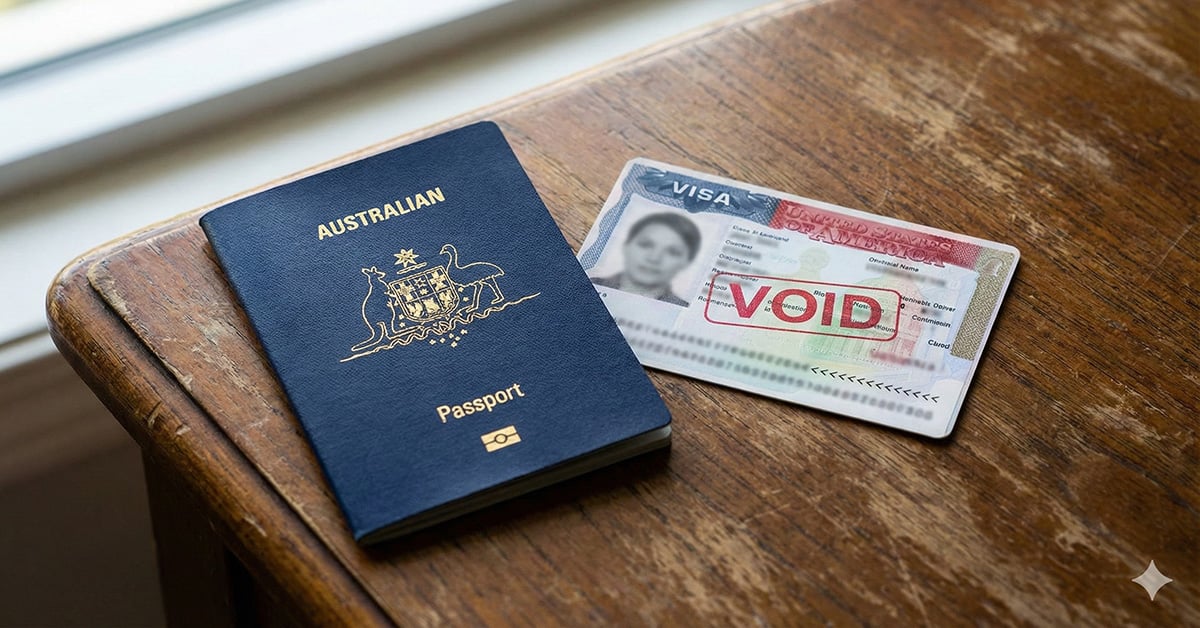Residency is a confusing term because it's used by so many different parties in so many different ways. The number of times I read: “NO, I'M ON A TEMPORARY VISA, I'M NOT A RESIDENT OF THE U.S.” is quite incredible. So how can you determine your residency if you're just “temporarily” living in the United States? Here's how!
It comes up a lot whether you're looking at getting your driver license in NYC, filing tax, or looking at rentals and the outcome of your investigation has a number of significant legal and social impacts, so you want to do it correctly.
So what is a “resident” in very straightforward terms?
Well, the dictionary defines it as (don't worry, I'll get off the best man speech shortly):

So the first test is obviously “are you a medical graduate engaged in specialized practice under supervision in a hospital”? No? Didn't think so.
The more appropriate answer there talks about someone who lives somewhere “permanently or on a long-term basis.” Now, I know that your visa says that you have to leave at a certain time, so you need to know that the legal definition of a resident is something quite different.
Residency & Green Cards
If you're on a green card, you literally have a document titled “Permanent Residence” so you can stop reading here (or here on the IRS's website) and just know that you're already in the box of “Resident”.
IRS & Tax Residency
In the United States, the IRS (tax) holds a lot of the power in determining residence for tax purposes. They have a handy page on “Determining Alien Tax Status” which refers you to this “Substantial Presence Test“:
- 31 days during the current year, and
- 183 days during the 3-year period that includes the current year and the 2 years immediately before that, counting:
All the days you were present in the current year, and
1/3 of the days you were present in the first year before the current year, and
1/6 of the days you were present in the second year before the current year.
Tick those boxes? Welcome to the Tax system!
You are now considered a “resident for tax purposes”, and you will need to complete the normal tax forms as any natural US citizen would. Check out my tax page for more information!
No? Your adventure continues!
You may be a “non-resident for tax purpose” which has its own set of forms that mirror the normal forms (they're pretty similar). The differences are subtle, but your residency for tax purposes is the first trigger when it comes to tax filing requirements.
State Rules & Residency
Each State has the power to define what a resident is, uniquely, as well for their own tax and related things like driver's licenses. In New York, the law states (with some exceptions) that:
You're a New York State resident for income tax purposes if:
- your domicile is New York State; or
- your domicile is not New York State but you maintain a permanent place of abode in New York State for more than 11 months of the year and spend 184 days or more in New York State during the tax year.
See how far we get into the weeds? What's a domicile!? Well, luckily that's defined on this page, too!
The long story short that I'm trying to get across to you is that you probably ARE a resident of wherever you live if you've been in the States for a few months. Even if you definitely plan to go home in 2 years, you need to file taxes here, you need to get a license here, and you need to act like everyone else here.
You can argue until you're blue in the face but the state trooper or the IRS is going to win.
Immigration & Residency (USCIS)
There are two things to note and clarify about this. For the purposes of USCIS Immigration, the word you may come across is “Nonimmigrant”. The USCIS defines this as:
An alien who seeks temporary entry to the United States for a specific purpose. The alien must have a permanent residence abroad (for most classes of admission) and qualify for the nonimmigrant classification sought.
This covers basically every ESTA, visa, and non-Green Card or citizenship applicant that you could be on.
The word there that really defines things is “permanent”. You are NOT a permanent resident of the US, but you ARE a Resident.
The other major exception is students studying in the US. Students (especially undergraduate) generally get an exemption from tax residency status as they have a definitive end to their study and can, therefore, prove their temporary status; confusing I know. But you'll need to do your own research on that one!
Other ways to ask this question:



















Great article. I think this topic also extends into – am I still a tax resident in Oz? Can I be tax resident in two countries?
Hi Elyse, you can potentially be a dual resident based on certain tests / visas. This is something you should definitely discuss with a professional as it would be determined on a case by case basis.